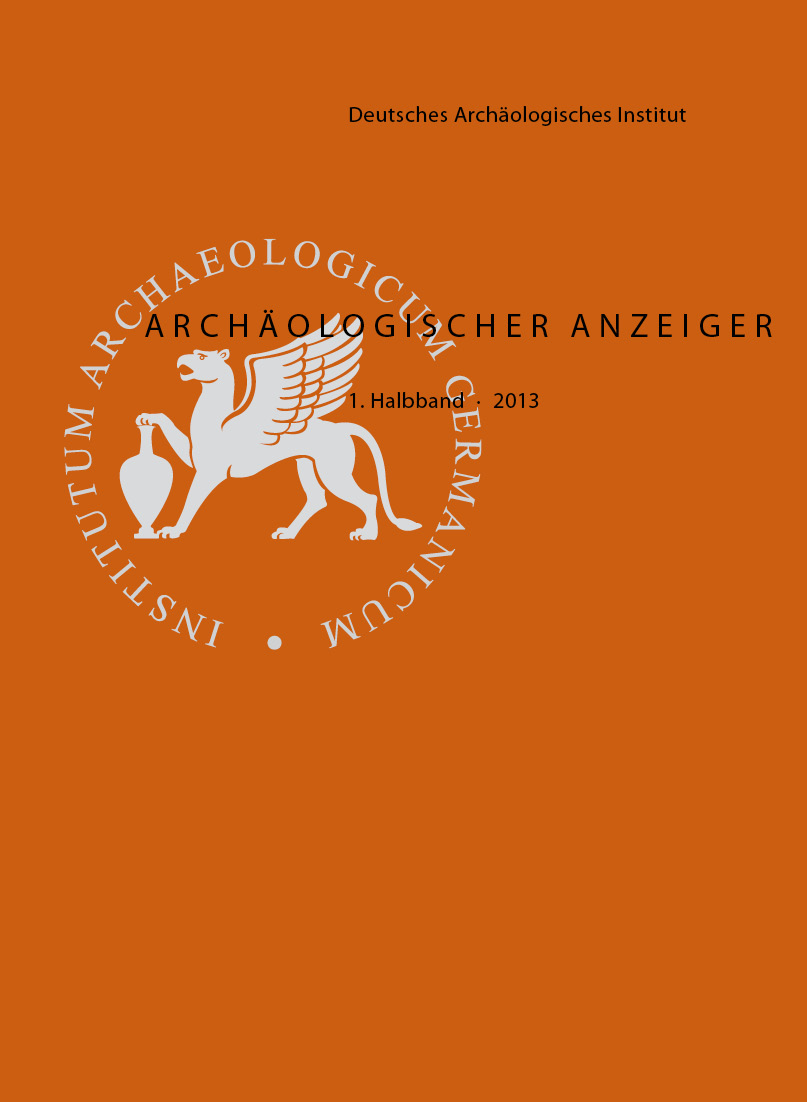»Marmorgeräte rätselhafter Zweckbestimmung« und das Problem ihrer Deutung
https://doi.org/10.34780/6ecf-6gsk
Abstract
Die zehn rechteckigen Marmorplatten, die aus Athen und Eleusis stammen, bilden eine eigene geschlossene Denkmälergruppe und konnten bis heute nicht gedeutet werden. Anhand einer systematischen Untersuchung auf der Basis einer detaillierten Katalogisierung legt diese Studie eine Deutung und Datierung der Marmorplatten vor. Indizien wie die Reliefdarstellungen, vor allem von Ölpressen, und Abarbeitungen weisen darauf hin, dass es sich um Abdeckplatten von θησαυροί handelt, in denen Geldbeträge verwahrt wurden, die zweifellos mit der Produktion und dem Vertrieb von Olivenöl verbunden waren. Die Platten können in den Späthellenismus und die frühe Kaiserzeit datiert werden; sie standen offenbar mit der breiten Übernahme von Elementen der römischen Wirtschaftsverwaltung in Zusammenhang, die in dieser Zeit in verschiedenen Bereichen erkennbar wird.
Schlagwörter:
θησαυρός, Opferstock, Steuern, Olivenöl, Ölpressen





